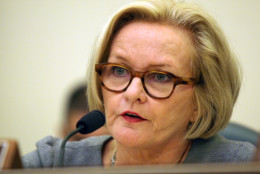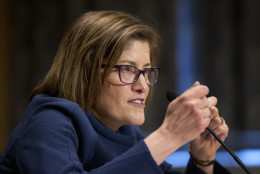Office of Personnel Management
-
Burdened by student debt, the youngest federal employees are entering the workforce later than their predecessors. As part of a Federal News Radio special report, What Millennials Really Want from Federal Service, most young employees said they'd prefer to stay in government, as long as they have opportunities to develop their skills, careers and benefits.
June 27, 2016 -
Federal employees will not be able to submit new Flexible Spending Account claims for health care or dependent care for a month this summer, starting July 30.
June 23, 2016 -
Roughly 85 percent of current Senior Executive Service members are eligible to retire within the next 10 years. And about half can retire within the next president's first term in office. But as the administration looks to agency career leaders to steer the upcoming presidential transition, 55 percent of GS-14s and GS-15s say they're not interested in joining the SES.
June 22, 2016 -
Two new memos from the Office of Personnel Management provide guidance for agencies to give "strong preference" to certain candidates for national security senior executive jobs. The memos also outline the roles and responsibilities of agencies and employees participating in an interagency rotation.
June 17, 2016 -
Sen. Claire McCaskill (D-Mo.) wants information from Office of Personnel Management acting Director Beth Cobert about SES members getting multiple performance bonuses in the same fiscal year.
June 16, 2016 -
OPM is pushing agencies to develop plans to deal with Metro maintenance, while feds are already seeing longer commutes and more traffic.
June 10, 2016 -
Federal contractors say there is room for improvement when it comes to protecting itself and working with government in a post-OPM breach environment. That includes modernizing the bidding process, sharing more information and being ready to adapt to an ever-changing threat.
June 08, 2016 -
New numbers from the Office of Personnel Management show that only about 2.7 million people — or roughly 11 percent — out of the 21.5 million victims of the two OPM data breaches last year have enrolled in free identity protection services.
June 07, 2016 -
An exclusive Federal News Radio survey found that about 45 percent of public and private sector employees disagreed with the notion that their office or agency was better prepared to protect against future data breaches. Only about 25 percent of respondents said they were confident their workplace understood cyber risks.
June 07, 2016 -
Since the Office of Personnel Management's first announcement on June 4, 2015 that the personal information of millions of current and former federal employees had been hacked, a series of milestones and setbacks have occurred in its wake. Here's a look at some of what's happened in the past 12 months.
June 07, 2016 -
The Office of Personnel Management experienced some of the biggest changes in the year since hackers stole the data of 22 million current and former federal employees. The cyber attack helped put in motion some of the biggest cybersecurity improvements in the last decade.
June 07, 2016 -
The Office of Personnel Management continued to draw down its retirement claims backlog in May, but its inventory remains higher than the agency's benchmark.
June 06, 2016 -
After 29 years of disappointment, OPM said it has the right governance and oversight processes in place to modernize its retirement systems.
June 06, 2016 -
The Office of Personnel Management posted a job announcement June 1 for a new chief information officer.
June 01, 2016 -
Acting Director of the Office of Personnel Management Beth Cobert is encouraging feds to fill out the Federal Employee Viewpoint Survey before it closes in June, listing changes at OPM as proof that agencies pay attention to and act on the results.
June 01, 2016















